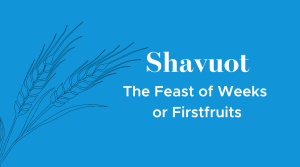Shavuot is a significant Jewish festival that commemorates the time when the first fruits were harvested and brought to the Temple, and it is also believed to be the time when Moses received the Ten Commandments from God on Mount Sinai. The festival of Shavuot, also known as the “Feast of Weeks,” is celebrated seven weeks after Passover. It is a two-day event (in the diaspora, one day in Israel) marked by various customs and traditions.
For example, the reading of the Book of Ruth, an all-night study of the Torah, and the eating of dairy foods are some of the traditions practiced during this period. This guide aims to provide comprehensive insight into the origins, significance, customs, and traditions of Shavuot, helping individuals to understand the festival’s true essence and purpose. It will delve into the historical background, religious significance, and the different ways it is celebrated by Jewish communities across the globe.
What Exactly is Shavuot?
Shavuot, which translates to ‘weeks’ in Hebrew, is a significant Jewish festival that takes place seven weeks after Passover. Falling on the fiftieth day after the second day of Passover, Shavuot is often associated with the wheat harvest in Israel, as it originally began as an agricultural festival. However, over time, it has evolved into a commemoration of the Israelites receiving the Torah at Mount Sinai. This event is viewed as a pivotal moment in Jewish history, symbolizing the birth of the Jewish nation. Shavuot traditions include reading the Book of Ruth, staying up all night to study Torah, and eating dairy foods.
This latter tradition is believed to symbolize the ‘land flowing with milk and honey’ mentioned in the Torah. Synagogues are often decorated with flowers and greenery, reflecting the agricultural origins of the festival. While it might not be as widely recognized as other Jewish holidays such as Passover or Hanukkah, Shavuot holds profound significance in Jewish tradition, serving as a reminder of their historical journey and the spiritual wisdom they received at Mount Sinai. It’s a time of reflection, celebration, and gratitude for the Jewish community. Shavuot is a rich, multifaceted festival, embodying the essence of Jewish history, culture, and spirituality.
When Does Shavuot Fall in 2024?
Shavuot, the Jewish holiday that marks the wheat harvest in Israel and commemorates the anniversary of the day God gave the Torah to the nation of Israel assembled at Mount Sinai, has a variable date each year due to the Hebrew calendar. This calendar is lunisolar, which means it is based on both lunar and solar years. As a result, Shavuot does not have a fixed date on the Gregorian calendar, which is solar-based and used by most of the world today. In 2024, Shavuot will start at sundown on May 14 and will end at nightfall on May 16.
This festival is exactly seven weeks after Passover, which is why it is also known as “The Feast of Weeks.” During this period, Jewish people participate in various traditions and rituals, including reading the Book of Ruth, staying up all night to study Torah, and consuming dairy foods. Shavuot is a significant holiday in the Jewish calendar, providing an opportunity to reflect on the importance and impact of the Torah on Jewish life and culture.

How Do You Pronounce Shavuot?
Shavuot, a significant Jewish holiday, is often mispronounced due to its unique phonetic structure. The correct Hebrew pronunciation is “shah-voo-ote,” with the stress on the last syllable. The initial ‘sh’ sound is akin to the ‘sh’ in ‘shoe.’ The ‘a’ in the first syllable is pronounced as the ‘a’ in ‘car.’ The middle syllable, ‘voo,’ is pronounced as in ‘view.’ The final syllable, ‘ote,’ is slightly trickier, as the ‘o’ is pronounced like the ‘o’ in ‘note,’ and the ‘t’ has a soft sound, similar to the ‘t’ in ‘gourmet.’ It’s important to note that this pronunciation can vary a bit based on regional accents and dialects.
For instance, Ashkenazi Jews, who originate from Eastern Europe, might pronounce it as “Shavuos,” while Sephardic Jews, primarily from Spain and the Mediterranean, would stick to the traditional “Shavuot.” Furthermore, in Israel, the modern Hebrew pronunciation is “Sha-voo-ot,” with stress again on the last syllable. Regardless of slight variations, understanding and respecting the pronunciation of Shavuot provides a deeper connection to the holiday and its cultural significance.
What Are the Customs and Traditions of Shavuot?
Shavuot, a significant Jewish festival, is steeped in numerous customs and traditions that enhance its spiritual and cultural significance. One of the most common traditions is the reading of the Book of Ruth, which symbolizes loyalty to the Jewish community, the acceptance of the Torah, and the harvest season, all of which are central themes of Shavuot. Additionally, it is customary to stay up all night studying Jewish texts, a practice known as Tikkun Leil Shavuot. This tradition stems from the mystical belief that on Shavuot, heaven opens up at midnight to hear the learning and prayers of the Jewish people.
Decorating homes and synagogues with greenery and flowers is another Shavuot tradition, representing the biblical description of Mount Sinai as a lush, green mountain. The festival also involves the tradition of eating dairy foods, such as cheesecake and blintzes. This dietary tradition has several interpretations, including the symbolism of the Torah as “milk and honey under the tongue.”
In some communities, it is also customary to engage in a ritual called Akdamut, where a liturgical poem written in Aramaic is recited. This poem praises God and the Torah, and its recitation signifies the Jewish people’s unwavering faith and commitment.
Meanwhile, the Sephardic Jews have a unique tradition called Tikkun Yom Shavuot, a special service that includes readings from the Torah and mystical texts. The practice of walking to a body of water and throwing pieces of bread or pebbles into it, known as Tashlich, is another Shavuot custom observed by some communities, symbolizing the casting away of sins.
Despite the varying customs and traditions, the essence of Shavuot remains the same across all Jewish communities – it is a day of gratitude for the divine gift of the Torah and a celebration of Jewish identity, history, and faith.

Why Is Eating Dairy a Tradition on Shavuot?
The tradition of consuming dairy products during Shavuot, a Jewish holiday which marks the giving of the Torah on Mount Sinai, encompasses a rich tapestry of symbolism and historical significance. There are multiple explanations for this customary practice. One interpretation points to the text in Exodus 3:8, where the land of Israel is referred to as a “land flowing with milk and honey,” thus associating dairy with the promise of a prosperous and fertile homeland. Another perspective is tied to the notion of purity. At the time of the revelation at Sinai, Jewish people had not yet received the comprehensive dietary guidelines stipulated in the Torah. Hence, they chose to eat simple dairy foods, which were considered pure and free of complications regarding their preparation.
Similarly, some believe that the consumption of dairy symbolizes the Jewish nation’s status as “babes” in terms of their spiritual development at the time of receiving the Torah, just as milk is for infants. Others suggest that the tradition stems from the numerical value of the Hebrew word for milk, “chalav,” which is 40 – corresponding to the 40 days Moses spent on Mount Sinai. Regardless of the specific reasons, the custom of eating dairy on Shavuot is a deeply ingrained part of Jewish culture, reflecting both historical events and spiritual symbolism. It serves as a reminder of the origins of Jewish law, the promise of the land of Israel, and the start of the Jewish people’s unique relationship with divinity.
Is Working Permitted on Shavuot?
Shavuot is a significant Jewish holiday that celebrates the giving of the Torah at Mount Sinai. As such, traditional observance often entails refraining from work in honor of this sacred day. This practice is grounded in Jewish religious texts and is a common custom among many Jewish communities worldwide. However, it should be noted that the restrictions on labor during Shavuot, similar to those during other Jewish holidays, can vary depending on one’s level of observance and personal interpretation of Jewish laws.
Some might choose to abstain from all forms of work, while others may only avoid certain types of work or none at all. Moreover, the concept of ‘work’ in a religious context can differ substantially from its secular definition, involving intricate religious guidelines rather than simply professional or manual labor. Those who strictly adhere to traditional interpretations may not engage in activities such as writing, cooking, or driving. On the other hand, individuals who adopt a more liberal approach may permit such activities. It’s also worth considering that certain circumstances, such as essential work or emergencies, may require flexibility. Ultimately, the decision to work on Shavuot is deeply personal, reflecting one’s individual beliefs and practices. It is always advisable to consult a trusted religious authority or engage in personal study to gain a thorough understanding of the implications of working on Shavuot.
